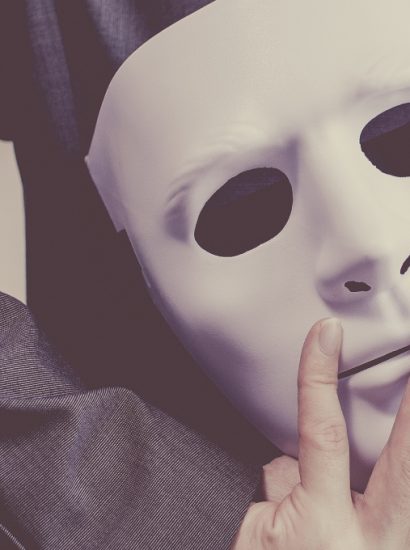This post is also available in: ΕΛΛΗΝΙΚΑ (GREEK) TÜRKÇE (TURKISH)
Just like many other locations around the world, this tiny island of the Mediterranean couldn’t save itself from war and conflicts.
People who lived side by side were turned into enemies, shots were fired, and people died.
Friendship was replaced by enmity, and suffering replaced the happy and peaceful life.
So much suffering was experienced on this tiny island… So much suffering and so many tears…
Instead of deriving lessons from the pain and fostering friendships, the pain was exploited, and new animosities were fuelled.
Years followed years, but in no way could genuine peace be found, or a solution generated.
Some always found an opportunity to scratch the wounds and tried to use that to keep the two communities living on this tiny island as enemies.
Unfortunately, many Cypriots fell for this game…
We said that “people died,” but in war and conflicts, there are also those whose bodies are never found.
Do we actually say they are dead? The dead would have a lifeless body, you hold a funeral and bury them, don’t you?
So, what were we going to call those victims of war and conflict whose bodies could not be found?
How can you call a person whose lifeless body you did not see “dead”?
What will you do if they were to walk through that door one day and say, “I’m here”?
How can you consider someone as “dead” when you haven’t seen their body?
Then, should you cry for someone whose body you haven’t seen, should you mourn for them?
Isn’t mourning reserved for the deceased? Who should we mourn for?
We called those who were victims of war and conflict but whose bodies were never found “missing”.
From then onwards they were “missing”, both communities have missing persons and both communities share the same tragedy.
While the loved ones wait with the feeling of “maybe one day they will walk through the door,” there are others who actually know about the fate of those missing.
Some of them personally contributed to the unfolding of this tragedy, while others may not have been at fault but were witnesses, whether from a distance or up close…
Perhaps someone had told others about the fate of these missing persons.
Now it is necessary for those who committed these crimes, those who were witnesses from near or far, and those who know what others have told them to speak up and share what they know.
There are those who do this… There are those who diligently track clues and make great efforts to find the missing, despite many visible or invisible obstacles.
It is also known that some sovereigns pretend “to want the missing to be found”, but in reality, they do not.
Being a relative of a missing person is like being unable to emerge from the darkness.
It is difficult to emerge from that darkness without finding your loved one…
It’s as if time works two ways for the relatives of the missing: the time when they continue with their normal lives and a parallel point in time that is more painful and filled with unknowns as they wait for their missing loved ones.
For those who cannot find their missing relatives, that parallel moment in time never stops and becomes more agonizing as time goes by. I am not saying this; it’s what the relatives of the missing say.
“I would give anything to find my loved one, to bury them, to go to their grave, and say, ‘Here they are,'” a relative of a missing person once said.
Another relative of a missing person said, “The pain of someone who has lost a loved one and the pain of someone whose loved one is missing is not the same. The pain of a relative of a missing person is tenfold. Only, when a person finds their missing loved one, can their pain be equalled to that of someone who lost their loved one.”
For the relatives of the missing, “the missing” is a non-healing wound, a dark abyss they cannot get out of.
That’s why the Bi-communal Committee on Missing Persons was established, and a call was made to those from both communities who have information to share what they know.
Of course, it’s not enough to just make a call; one has to make an effort and overcome the obstacles. There are people who have dedicated themselves to this cause, volunteers who make it their life’s philosophy or mission…
Those who strive hard to find even the tiniest clue…
They called those dedicated volunteers “healers of our communities.”
“Healers of communities,” what a beautiful and meaningful form of address, what a divine title it is.
From time to time, these volunteer heroes are honoured. Last Wednesday, an event called “We honour those healing our communities” took place in the buffer zone.
The event was organized by over a hundred Turkish Cypriot and Greek Cypriot civil society organizations, unions, and political parties, upon the proposal of the Bicommunal Peace Initiative-United Cyprus, and six devoted individuals, three Turkish Cypriots and three Greek Cypriots, who helped locate missing persons were honoured with awards.
Undoubtedly, they did not do this to receive awards; for them, the award was to locate new missing persons through their contributions.
However, honouring those who engage in such beautiful, noble, and sacred work is also a very meaningful act. It is an example of faithfulness.
It is important to make others aware of the existence of these individuals and to multiply their numbers. There are still many missing persons who need to be found.
Sevgül Uludağ, an experienced journalist who was part of the organization of the event and shared the stories of the honoured individuals one by one, is a dear colleague who is also one of these volunteers.
She doesn’t do this work for the sake of awards, but she has received numerous awards to this day for her contribution to finding missing persons.
Sevgül Uludağ, without looking at any notes or papers, told the stories of the six honoured individuals, Dr. Derviş Özer, Michalis Yiangou Savvas, Leyla Kıralp, Kyriakos Andreou, Mustafa Gürsel, and Andreas Kostas Gounaris, one by one.
One of the participants of the event said, “Sevgül Hanım has come well prepared,” but I objected and corrected him by saying; “No, this is not about being well prepared, Sevgül Hanım is living the event.”
Indeed, my colleague has devoted herself to finding the missing persons; she has made it her life philosophy and she is living it. She is in fact living for this purpose…
Meanwhile, the honorees were given the opportunity to speak. Dr. Derviş Özer said that the Cyprus problem will only end when we learn to say “I love you” to each other in each other’s language. It is a beautiful statement, and we know that there are even those who cannot say these words despite speaking the same language. Indeed, in every situation, we must be able to say “I love you.”
Leyla Kıralp mentioned that the relatives of the missing have been waiting to hear of their missing loved ones for the past 50 years but that the missing lay buried in deep wells, and that their families remained in the darkness along with them. Yes, there is a need for more “healers of communities” to reunite the missing in those deep wells with their families.
Mustafa Gürsel underlined that time was running out for the missing, that our task was becoming harder, pointing out that those who committed these atrocities were dying, those who knew what happened were dying, those who waited were dying, that human activities on the land continued to conceal the missing once again, and that there were bad people who once again made the missing disappear by moving their remains from their locations. Gürsel pointed out that our missing ones silently waited to reunite with their families and loved ones, to be laid to rest and to have a grave. “We are their voice. I appeal to those who have information; please speak up now. Do a favour to people who have been suffering for a lifetime. Do not bury what you know with you. You are too late. We are only looking for the missing, not the killers,” he said. It is truly a meaningful call…
Andreas Kostas Gounaris also expressed his gratitude to those who deemed him worthy of this award and conveyed his wishes for peace in Cyprus so that such pain was not experienced ever again. Of course, we do not want to experience such pain again, so we must set aside frictions, tensions, and enmities and prioritize peace and friendship.
Michalis Yiangou Savvas delivered messages of friendship as he said that he tirelessly works to find the missing. Savvas shared that his mother used to leave him with their Turkish Cypriot neighbour when she went to work. He mentioned that Pembe Hanım, their neighbour, breastfed him. A beautiful example of Turkish Cypriot-Greek Cypriot friendship. If only such beautiful acts were always at the forefront, instead of evil.
Kyriakos Andreou was humble enough to say, “I haven’t done anything significant, I did what I had to do,” but even if he said, “I haven’t done anything,” he has indeed accomplished important work. Kyriakos Andreou and the other five humble individuals were honoured that night because of their beautiful hearts.
It was a sad evening, the speeches touched us and brought tears to our eyes, but still, this event gave us hope. It conveyed the message that there is still much work to be done for the missing, that new volunteers can join these beautiful people in the race against time, that it is necessary for more individuals to join, and that the fight to overcome obstacles must be intensified. There’s no need to be a relative of the missing to search for the missing. Extend a helping hand to bring the missing and their loved ones into the light. Certainly, there are things that everyone can do…
Source: EVERYONE SHOULD DO THEIR UTMOST TO BRING THE MISSING AND THEIR LOVED ONES OUT OF THE DARKNESS…






